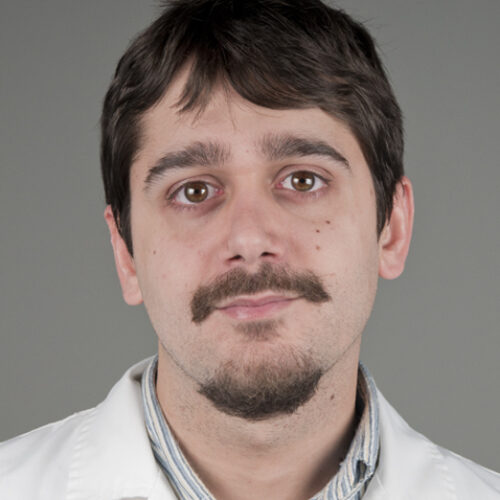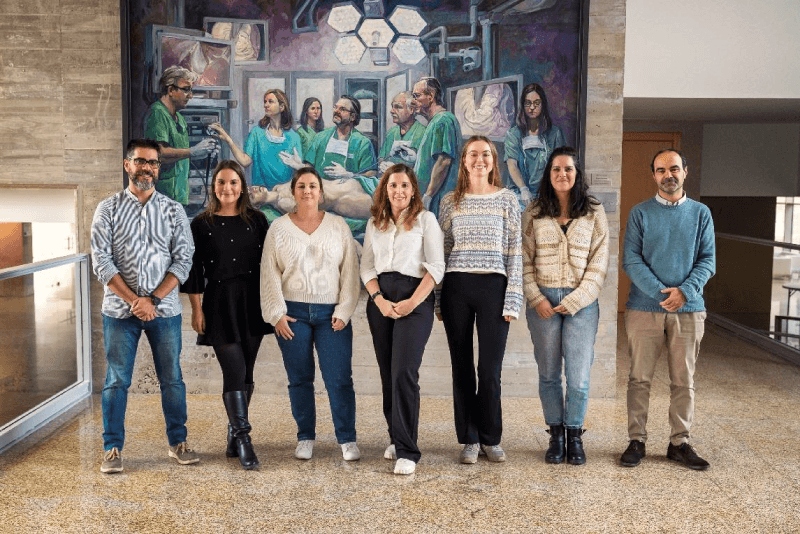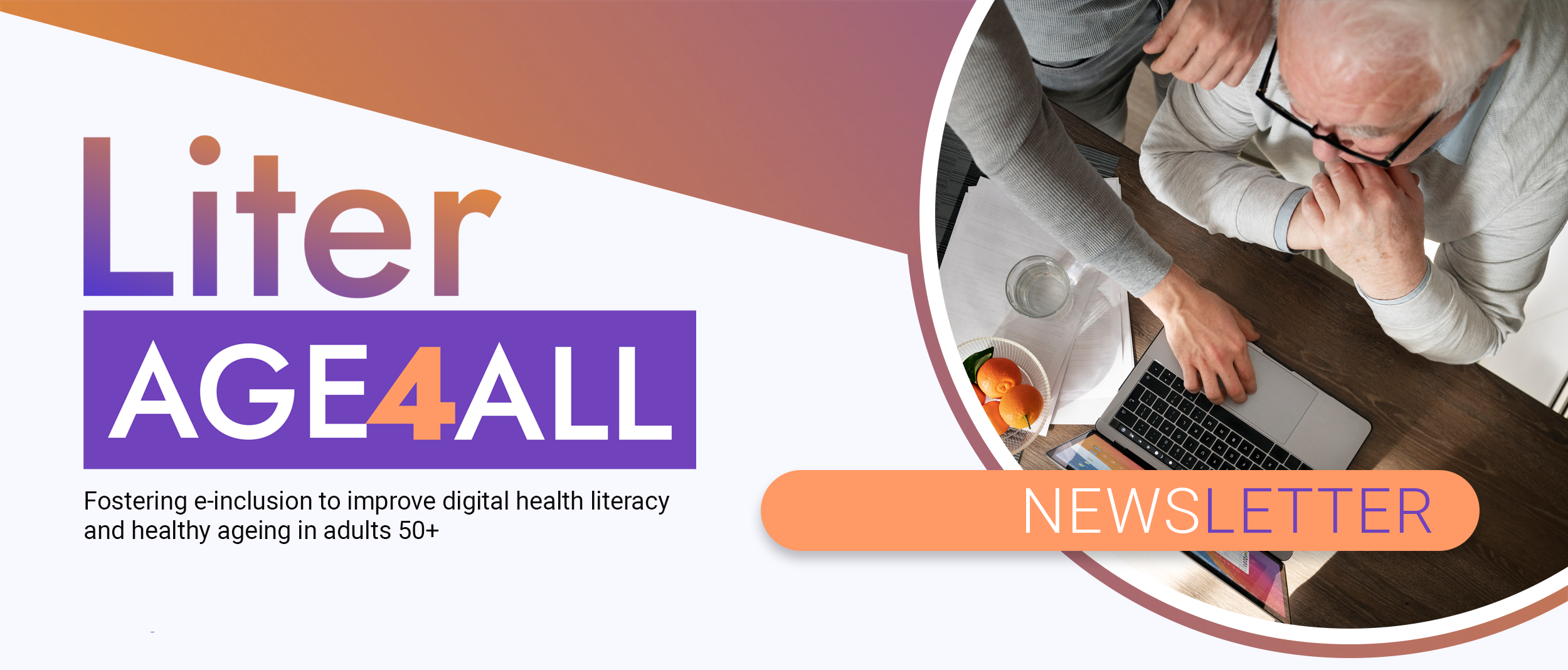
Fostering e-inclusion to improve digital health literacy and healthy ageing in adults 50+
The digital transition is occurring fast, and several vulnerable groups, such as older adults, are unable to follow it.
The exclusion of older adults from the digital world represents a new type of social exclusion and prevents individuals from seeking health information online and receiving medical services, which may exacerbate health disparity and poorer health outcomes.



The LiterAge4All aims to improve digital health literacy and promote healthy ageing in adults 50+ through accessible technology that fosters the digital inclusion of those people at great risk of exclusion.
The LiterAge4All aims to improve digital health literacy and promote healthy ageing in adults 50+ through accessible technology that fosters the digital inclusion of those people at great risk of exclusion.
The Team
Meet the faces of Literage4All
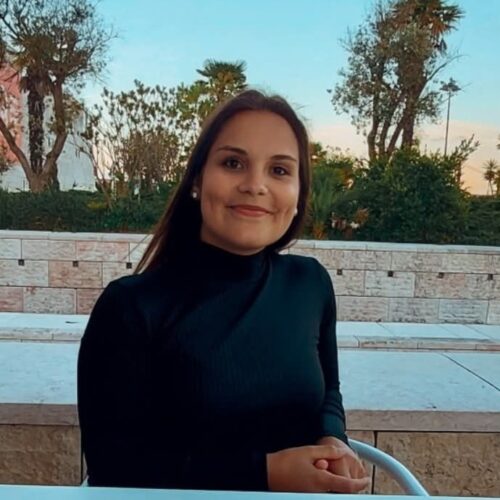
Mariana Fonseca
Expected Results

PROJECT RESULT I
Digital health literacy course curriculum
In this PR, a user-centred course curriculum to improve the digital health literacy of adults over 50 will be developed.
PROJECT RESULT III
Digital health literacy course
This PR will provide adults over 50 with trustworthy knowledge regarding health-related aspects.

PROJECT RESULT II
Digital libraries
In this PR, national and international digital libraries, gathering the most relevant references on health topics crucial for healthy ageing and health-related technological tools available, will be created.

PROJECT RESULT IV
TV app
The created courses, including a course on basic digital skills, will be available through the TV app as an alternative to delivering the developed courses to adults.

PROJECT RESULT V
Toolkit “train the trainers”
This PR will be developed to train volunteers in teaching adults 50+ to reach the e-health literacy course.


The Context
According to the European Pillar of Social Rights, the European Commission encourages Member States to improve health systems’ digitalisation to face health inequalities. However, digital transformation can be disruptive, especially among older adults with limited exposure to digital technologies during their working and personal lives. International reports have shown that older people represent the largest proportion of non-users of the Internet.

The Context
According to the European Pillar of Social Rights, the European Commission encourages Member States to improve health systems’ digitalisation to face health inequalities. However, digital transformation can be disruptive, especially among older adults with limited exposure to digital technologies during their working and personal lives. International reports have shown that older people represent the largest proportion of non-users of the Internet. They are mainly excluded from digital services due to several barriers to using ICTs, such as a lack of interest and skills for internet use. The exclusion of older adults from the digital world represents a new social exclusion, leaving behind the most in need. This prevents individuals from seeking health information online and receiving medical services, which may exacerbate health disparity and poorer health outcomes among older adults. Indeed, in this group, digital exclusion has been associated with greater impairment in instrumental activities of daily living and healthcare needs.
They are mainly excluded from digital services due to several barriers to using ICTs, such as a lack of interest and skills for internet use. The exclusion of older adults from the digital world represents a new social exclusion, leaving behind the most in need. This prevents individuals from seeking health information online and receiving medical services, which may exacerbate health disparity and poorer health outcomes among older adults. Indeed, in this group, digital exclusion has been associated with greater impairment in instrumental activities of daily living and healthcare needs.

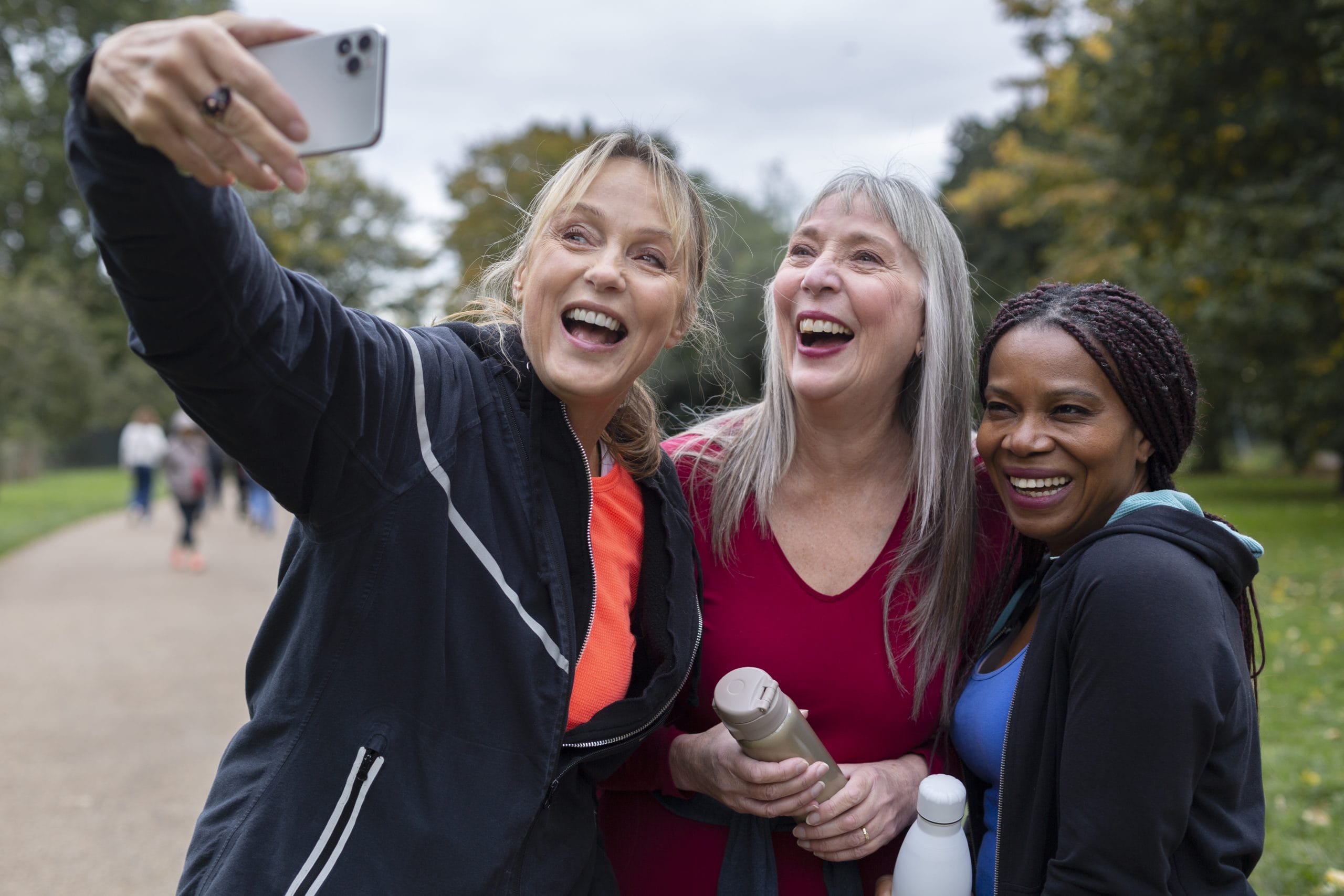
Aim
The LiterAge4All aims to improve digital health literacy and promote healthy ageing in adults 50+ through accessible technology that fosters the digital inclusion of those people at great risk of exclusion. Two main activities will be implemented by the LiterAge4All project:
1) A co-created digital educational program (course and curriculum) to improve digital literacy in health and,
2) A multichannel strategy (e-learning and TV app) to broaden this knowledge. To complement the conventional e-learning platform, an innovative TV app will be developed as an alternative to delivering the learning content (basic digital skills and digital health literacy) to older adults.

Aim
The LiterAge4All aims to improve digital health literacy and promote healthy ageing in adults 50+ through accessible technology that fosters the digital inclusion of those people at great risk of exclusion. Two main activities will be implemented by the LiterAge4All project:
1) A co-created digital educational program (course and curriculum) to improve digital literacy in health and,
2) A multichannel strategy (e-learning and TV app) to broaden this knowledge. To complement the conventional e-learning platform, an innovative TV app will be developed as an alternative to delivering the learning content (basic digital skills and digital health literacy) to older adults.
Consortium
The LiterAge4All (IPG, CCMIJU, SPLS, SDC and PS) consortium consists of a multidisciplinary team of technical, healthcare and gerontological partners involving public and private institutions, which perfectly complement their capabilities and technical resources to achieve the ambitious goals set. Each of the five institutions has an intrinsic feature that positively reinforces this proposal: the devotion to ageing and the application of ICT to health will lead to a successful digital health literacy of older adults.


Consortium
The LiterAge4All (IPG, CCMIJU, SPLS, SDC and PS) consortium consists of a multidisciplinary team of technical, healthcare and gerontological partners involving public and private institutions, which perfectly complement their capabilities and technical resources to achieve the ambitious goals set. Each of the five institutions has an intrinsic feature that positively reinforces this proposal: the devotion to ageing and the application of ICT to health will lead to a successful digital health literacy of older adults.

Instituto Politécnico da Guarda
The Politécnico da Guarda is a higher education Institute with practical and research experience in active ageing promotion and healthy lifestyles through the implementation of physical activity programs for adults. Also, IPG has experience in health promotion and gerontology education and developed several interventions in the community to promote Healthy Ageing.

CCMIJU
The Fundación Centro de Cirugía de Mínima Invasión Jesús Usón (CCMIJU) is a multidisciplinary institution devoted to excellence in research and training in the health sector. Specifically, it is committed to other technological development and innovation in healthcare.

Stiftung Digitale Chancen
The Stiftung Digitale Chancen Foundation (SDC) aims to promote the digital inclusion of all societal groups and counteract the digital divide, as in the case addressed by the LiterAge4All project of older people, mainly in rural areas. SDC has broad experience in digital training approaches, including the development of training curricula and blended learning courses.

SPLS
The Sociedade Portuguesa de Literacia em Saúde is a non-profit scientific and training association with purposes in the promotion and practice of Health Literacy. They will be the strong point to ensure the successful and effective practice of the dissemination actions of the project, contributing to the education and promotion of older adults’ digital health.

Politechnika Śląska
The Politechnika Śląska is a higher education institution experienced in practical and research activities for improving the quality of life, including digital literacy of older people, especially regarding the use of ICT tools to enhance the accessibility to public services. They also have experience in preparing digital content to be easy to assimilate for older adults.

Instituto Politécnico da Guarda
The Politécnico da Guarda is a higher education Institute with practical and research experience in active ageing promotion and healthy lifestyles through the implementation of physical activity programs for adults. Also, IPG has experience in health promotion and gerontology education and developed several interventions in the community to promote Healthy Ageing.

CCMIJU
The Fundación Centro de Cirugía de Mínima Invasión Jesús Usón (CCMIJU) is a multidisciplinary institution devoted to excellence in research and training in the health sector. Specifically, it is committed to other technological development and innovation in healthcare.

Stiftung Digitale Chancen
The Stiftung Digitale Chancen Foundation (SDC) aims to promote the digital inclusion of all societal groups and counteract the digital divide, as in the case addressed by the LiterAge4All project of older people, mainly in rural areas. SDC has broad experience in digital training approaches, including the development of training curricula and blended learning courses.

SPLS
The Sociedade Portuguesa de Literacia em Saúde is a non-profit scientific and training association with purposes in the promotion and practice of Health Literacy. They will be the strong point to ensure the successful and effective practice of the dissemination actions of the project, contributing to the education and promotion of older adults’ digital health.

Politechnika Śląska
The Politechnika Śląska is a higher education institution experienced in practical and research activities for improving the quality of life, including digital literacy of older people, especially regarding the use of ICT tools to enhance the accessibility to public services. They also have experience in preparing digital content to be easy to assimilate for older adults.

Instituto Politécnico da Guarda
The Politécnico da Guarda is a higher education Institute with practical and research experience in active ageing promotion and healthy lifestyles through the implementation of physical activity programs for adults. Also, IPG has experience in health promotion and gerontology education and developed several interventions in the community to promote Healthy Ageing.

CCMIJU
The Fundación Centro de Cirugía de Mínima Invasión Jesús Usón (CCMIJU) is a multidisciplinary institution devoted to excellence in research and training in the health sector. Specifically, it is committed to other technological development and innovation in healthcare.

Stiftung Digitale Chancen
The Stiftung Digitale Chancen Foundation (SDC) aims to promote the digital inclusion of all societal groups and counteract the digital divide, as in the case addressed by the LiterAge4All project of older people, mainly in rural areas. SDC has broad experience in digital training approaches, including the development of training curricula and blended learning courses.

SPLS
The Sociedade Portuguesa de Literacia em Saúde is a non-profit scientific and training association with purposes in the promotion and practice of Health Literacy. They will be the strong point to ensure the successful and effective practice of the dissemination actions of the project, contributing to the education and promotion of older adults’ digital health.

Politechnika Śląska
The Politechnika Śląska is a higher education institution experienced in practical and research activities for improving the quality of life, including digital literacy of older people, especially regarding the use of ICT tools to enhance the accessibility to public services. They also have experience in preparing digital content to be easy to assimilate for older adults.

Instituto Politécnico da Guarda
The Politécnico da Guarda is a higher education Institute with practical and research experience in active ageing promotion and healthy lifestyles through the implementation of physical activity programs for adults. Also, IPG has experience in health promotion and gerontology education and developed several interventions in the community to promote Healthy Ageing.

CCMIJU
The Fundación Centro de Cirugía de Mínima Invasión Jesús Usón (CCMIJU) is a multidisciplinary institution devoted to excellence in research and training in the health sector. Specifically, it is committed to other technological development and innovation in healthcare.

Stiftung Digitale Chancen
The Stiftung Digitale Chancen Foundation (SDC) aims to promote the digital inclusion of all societal groups and counteract the digital divide, as in the case addressed by the LiterAge4All project of older people, mainly in rural areas. SDC has broad experience in digital training approaches, including the development of training curricula and blended learning courses.

SPLS
The Sociedade Portuguesa de Literacia em Saúde is a non-profit scientific and training association with purposes in the promotion and practice of Health Literacy. They will be the strong point to ensure the successful and effective practice of the dissemination actions of the project, contributing to the education and promotion of older adults’ digital health.

Politechnika Śląska
The Politechnika Śląska is a higher education institution experienced in practical and research activities for improving the quality of life, including digital literacy of older people, especially regarding the use of ICT tools to enhance the accessibility to public services. They also have experience in preparing digital content to be easy to assimilate for older adults.















